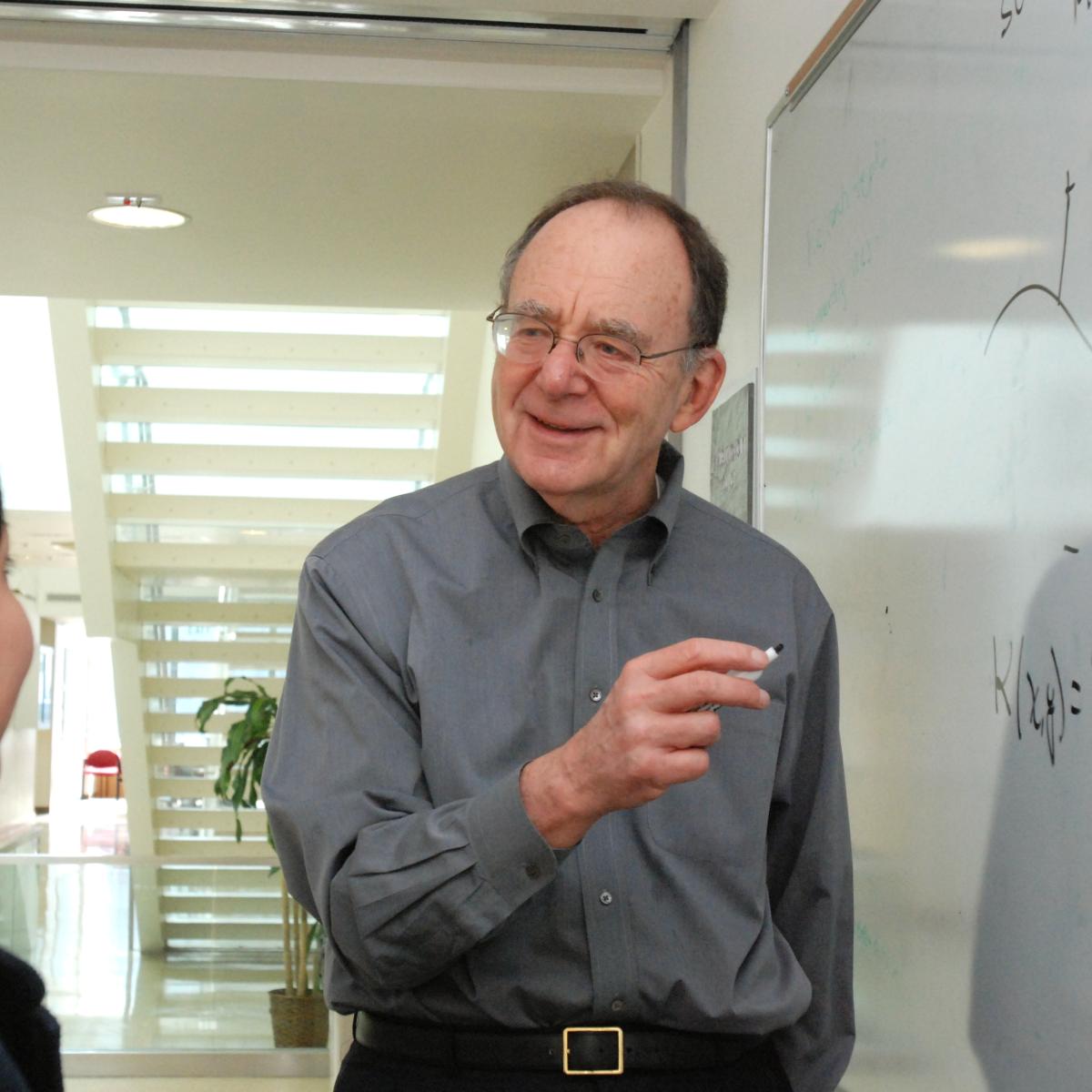
Richard Karp
Professor,
UC Berkeley
Richard Karp was the founding Director of the Simons Institute for the Theory of Computing (2012-2017). He attended Boston Latin School and Harvard University, receiving his PhD in 1959. From 1959 to 1968 he was a member of the Mathematical Sciences Department at IBM Research. From 1968 to 1994 and from 1999 to the present he has been a Professor at the University of California, Berkeley, where he held the Class of 1939 Chair and is currently a University Professor. From 1988 to 1995 and 1999 to the present he has been a Research Scientist at the International Computer Science Institute in Berkeley. From 1995 to 1999 he was a Professor at the University of Washington. During the 1985-86 academic year he was the co-organizer of a Computational Complexity Year at the Mathematical Sciences Research Institute (MSRI) in Berkeley. During the 1999-2000 academic year he was the Hewlett-Packard Visiting Professor at the Mathematical Sciences Research Institute.
The unifying theme in Karp's work has been the study of combinatorial algorithms. His 1972 paper, "Reducibility Among Combinatorial Problems," showed that many of the most commonly studied combinatorial problems are NP-complete, and hence likely to be intractable. Much of his work has concerned parallel algorithms, the probabilistic analysis of combinatorial optimization algorithms and the construction of randomized algorithms for combinatorial problems. His current research activities center around algorithmic methods in genomics and computer networking. He has supervised thirty-six PhD dissertations. His honors and awards include: U.S. National Medal of Science, Turing Award, Fulkerson Prize, Harvey Prize (Technion), Centennial Medal (Harvard), Lanchester Prize, Von Neumann Theory Prize, Von Neumann Lectureship, Distinguished Teaching Award (Berkeley), Faculty Research Lecturer (Berkeley), Miller Research Professor (Berkeley), Babbage Prize and eight honorary degrees. He is a member of the U.S. National Academies of Sciences and Engineering, the American Philosophical Society and the French Academy of Sciences, and a Fellow of the American Academy of Arts and Sciences, the American Association for the Advancement of Science, the Association for Computing Machinery and the Institute for Operations Research and Management Science.


